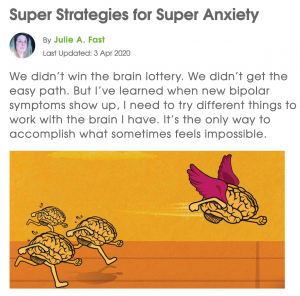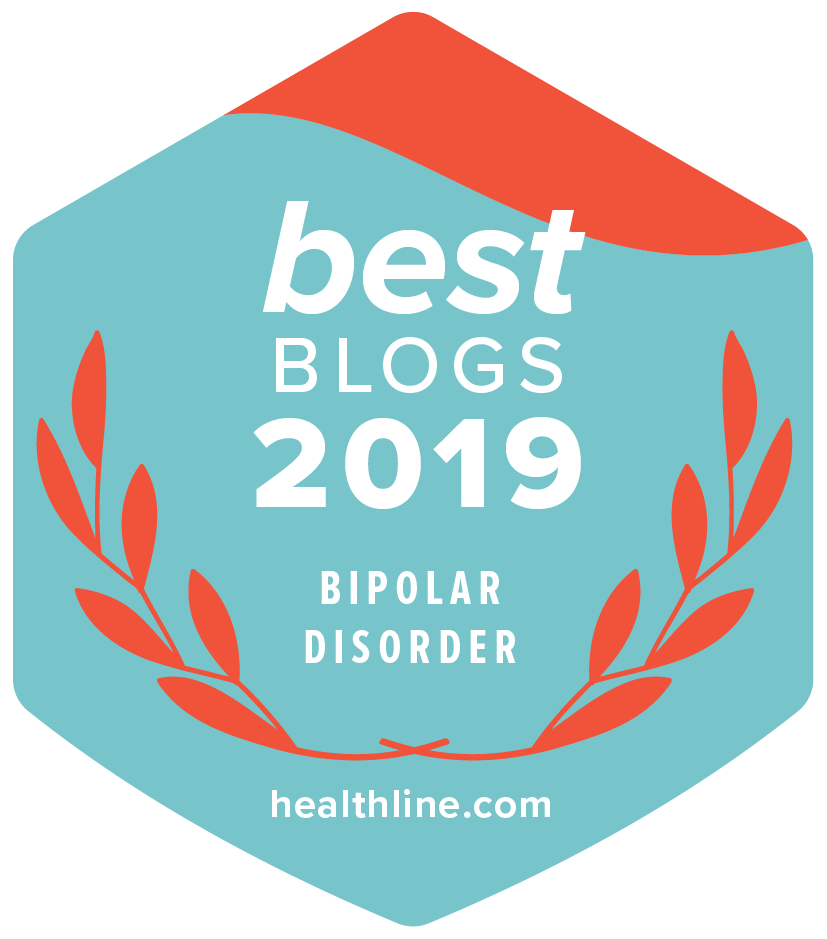Originally published on the Bp Magazine Website as Bipolar and Restlessness: What is Pre-Mania?
Learning the very first signs of a bipolar mania mood swing is the only way I have found to stop big manic episodes. If I don’t catch my mania early, I will let it flourish as I want to get things done. Mania almost always gives us little signs that it is staring. I’m calling this “PRE-Mania.” It has the following symptoms:
- We have trouble sleeping
- Other people bother us. It’s as though they are talking too fast or want to pick a fight with us.
- We know we need to slow down, but we can’t or we will get behind in work.
- We take on too much work due to our extra energy but feel stressed when we try to get it done.
- Our legs are restless and we often shake one leg up and down while sitting to deal with the excess energy.
- We don’t feel good physically or mentally.
- Our music choices are stimulating and slightly louder than normal.
- Others tell us we are talking too loud or ask, “Are you getting manic?” which makes us angry as we are not fully manic, but we are on the edge, so we are prickly.
If you have any of these symptoms, now is a VERY good time to stop what you’re doing, take stock of your actual mood and make a decision to stop the “Pre-Mania” before it goes too far.
It is 5 PM on a Saturday night as I write this. My mind is buzzing and I have way too many to do lists next to me. All I want to do is work for hours and hours and get caught up on life.
The past week was a bit of a downer and work was very difficult. To compensate, I worked too much and I’m now overstimulated. It’s not euphoric hypomania and it’s not quite yet dysphoric hypomania, but it’s right on the edge. If I continued to work for a few hours or decided to go out with friends for something stimulating such as karaoke, there is a GOOD chance I would get hypomanic.
Here is how I take care of this “PRE-Mania” and prevent it from turning into actually mania.
- I stop working. This means turning off the computer and reading a book, one I hold in my hands! Or I go to a dark movie theater and stay away from caffeine.
- I take my meds. If I feel I can control this, I don’t have to take extra meds, but if I still have a terrible time sleeping tonight and am still wired tomorrow morning, I will have to take an extra dose. I HATE this. But I will do it.
- I remind myself to calm down. I can make smart choices around my bipolar.
Mania is not inevitable. It’s not something I can give in to in order to get more done. I’m past that in my management life. I want to be stable. This means saying no to myself, saying no to being overstimulated, taking my meds and shutting off the computer until I have calmed down.
What do you need to do in life to prevent the PRE-Mania from turning into something that WILL disrupt your life?











